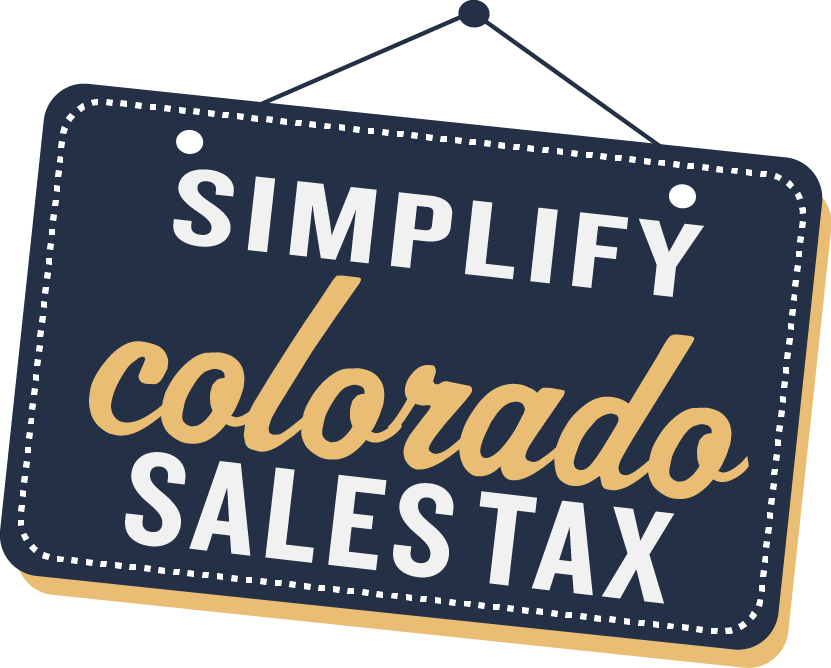2022 Legislation:
SUTS:
Frequently Asked SUTS Questions
Demonstration & Information
Coalition Accomplishments:
MISSION
The mission of the coalition is to reform Colorado’s excessively complex sales and use tax system with multiple goals: fairness, simplicity, and predictability for business; revenue neutrality to avoid any adverse impact on local and state public services; and a competitive economic environment in Colorado that will attract employers. This coalition of businesses, trade organizations, and other interested taxpayers will drive reforms to achieve these goals.
THE PROBLEMS
Colorado’s complex sales and use tax system is a significant burden on businesses, resulting in considerable costs to comply with a complex array of taxing jurisdictions. Due to unclear guidance and differences between jurisdictions, potential sales tax revenue is under-realized by taxing authorities. These jurisdictions then attempt to recoup taxes in audits that add penalties and interest (often two to three times market rates) to back-taxes that the business often did not know were due. Consumers are often hit with unexpected taxes after a sale—frustrating them and resulting in dissatisfaction with businesses that are just trying to fulfill a legal mandate. Based on tax appeal legislation this coalition advocated in 2016, businesses can now challenge audits in at least one independent court before being required to pay an assessment.* However, the overall complexity needs reform. It is impossible to quantify the businesses that decide not to locate to Colorado and the jobs lost due to the convoluted sales tax environment.
Colorado ranked 39th of states on the sales tax component in the Tax Foundation’s 2017 State Business Tax Climate Index. The same report shows that only six other states allow localities to define the sales tax base (see Table 15). taxfoundation.org
Colorado has a patchwork of 756 specific geographic areas with different sales tax rates and bases created by 294 taxing jurisdictions with overlapping boundaries. This produces what the state Department of Revenue called in a December, 2013 report a “heavy burden on businesses operating in our state.”
In 2013, the Council on State Taxation (COST) rated Colorado as the fourth worst state in the country (with a grade of D) in its Scorecard on Tax Appeals & Procedural Requirements. *In 2015 after the coalition’s work to pass a tax appeal reform bill, Colorado moved out of the bottom four. Overall, however, the COST grade is still a C+. cost.org
Colorado is the only non-participating state in Streamlined Sales Tax, a nationwide effort to address the complexity in state sales tax systems. streamlinedsalestax.org
Only five states – Alabama, Alaska, Arizona, Colorado and Louisiana – authorize a broad range of local governments to independently administer their sales. -Institute for Professionals in Taxation (IPT) Report: Locally Administered Sales and Use Taxes
“Database providers certified by the Department to provide businesses with tax jurisdiction look-up services based on addresses may not be fulfilling the General Assembly’s intent . . . to provide a means for businesses to accurately determine their sales tax liabilities.
Specifically, the Department has not verified the databases’ accuracy every 3 years as required, and lacked a reliable method for verifying their accuracy.”
Colorado Office of the State Auditor, Department of Revenue, Local Sales Taxes, Performance Audit, Nov. 2015. www.state.co.us/auditor
The 2011 statewide “Pits and Peeves” Roundtable Initiative, commissioned by Gov. John Hickenlooper, found “complexity, ambiguity and resulting confusion surrounding the state’s sales and use tax regime, which makes it extremely difficult for companies to comply.”
OBJECTIVES
*HB13-1288 – Required the Department of Revenue to produce a proposal for a uniform tax base in Colorado that would be revenue neutral. This report is complete.



